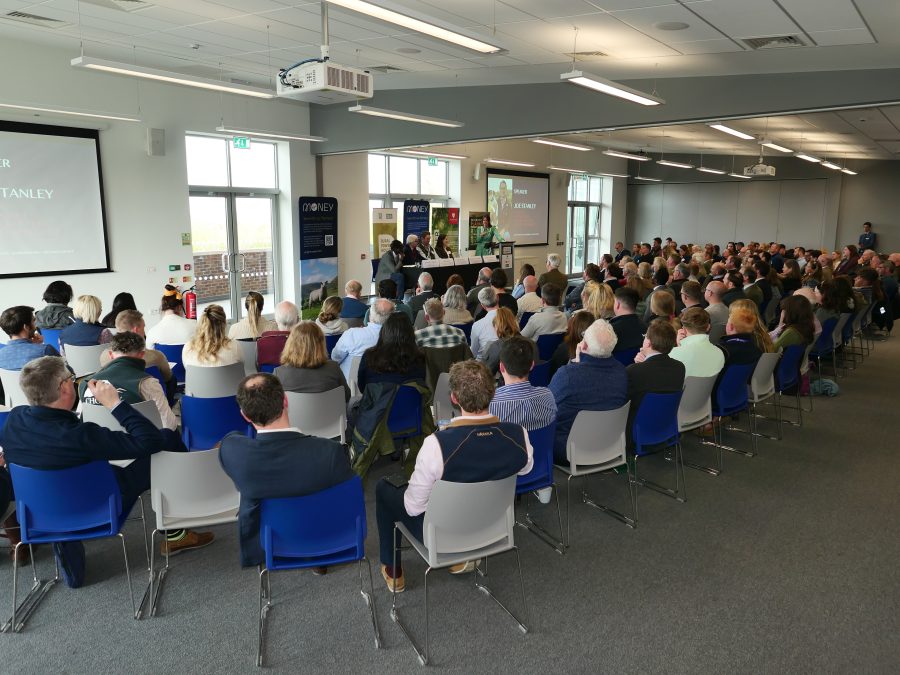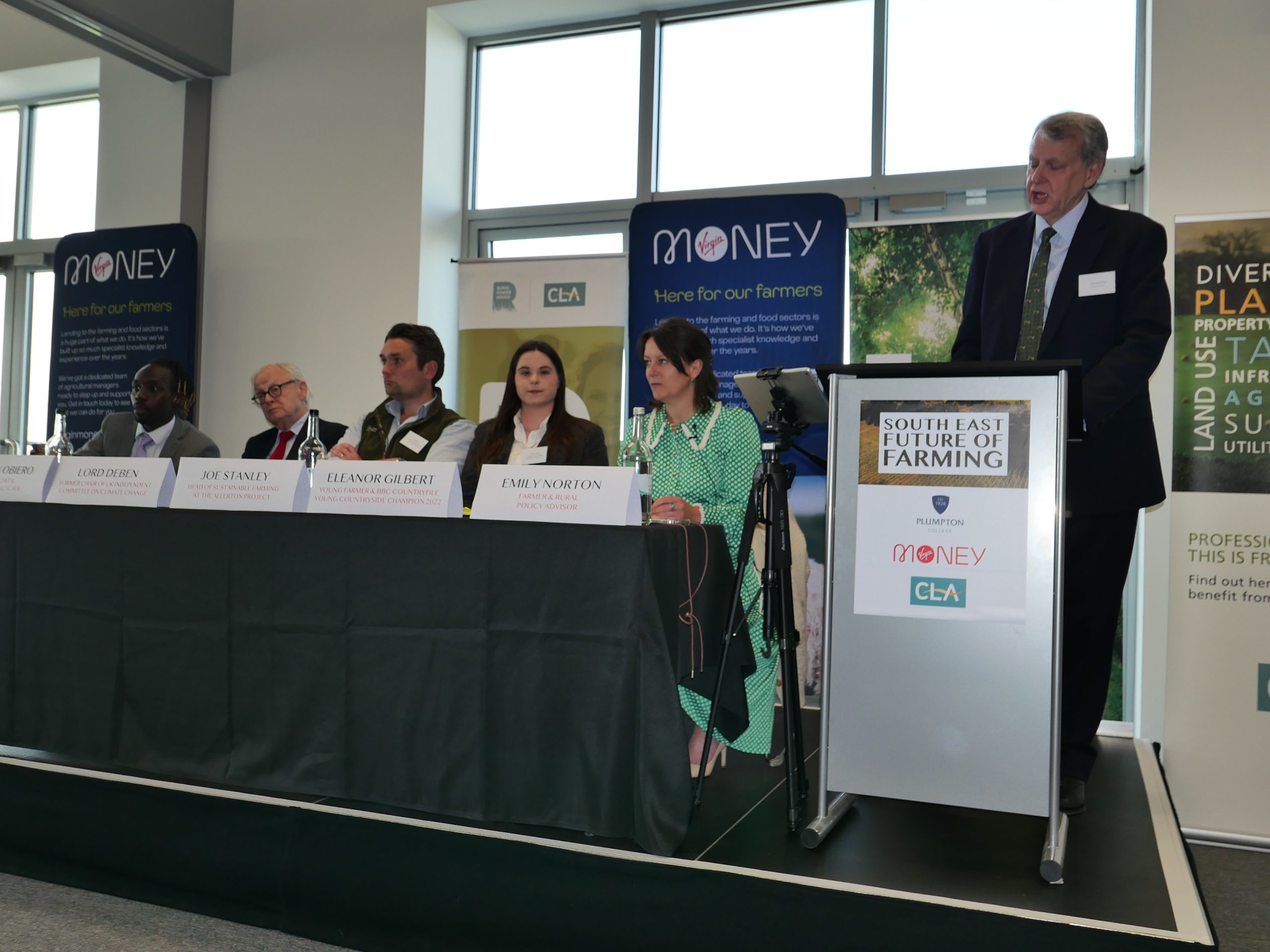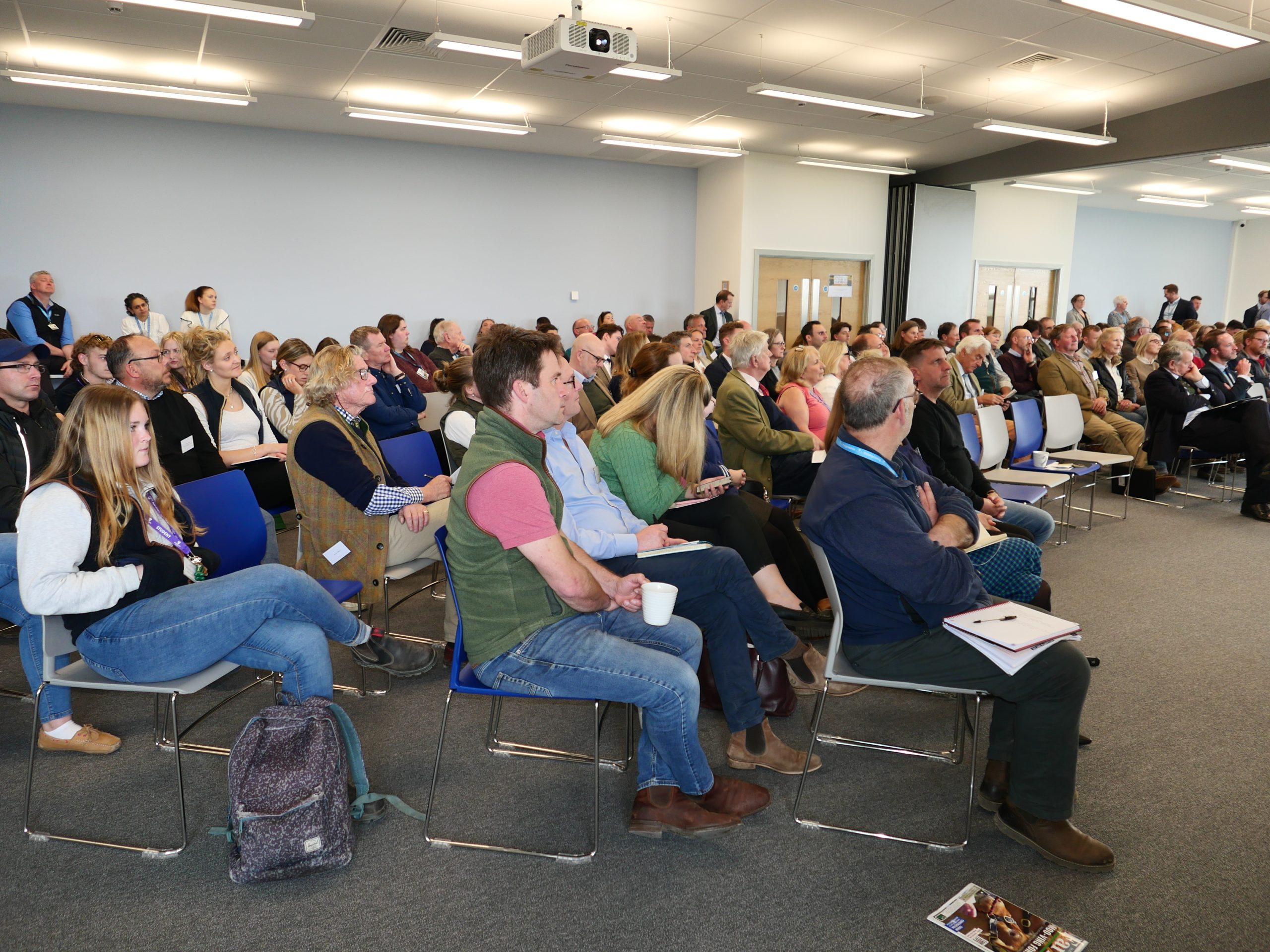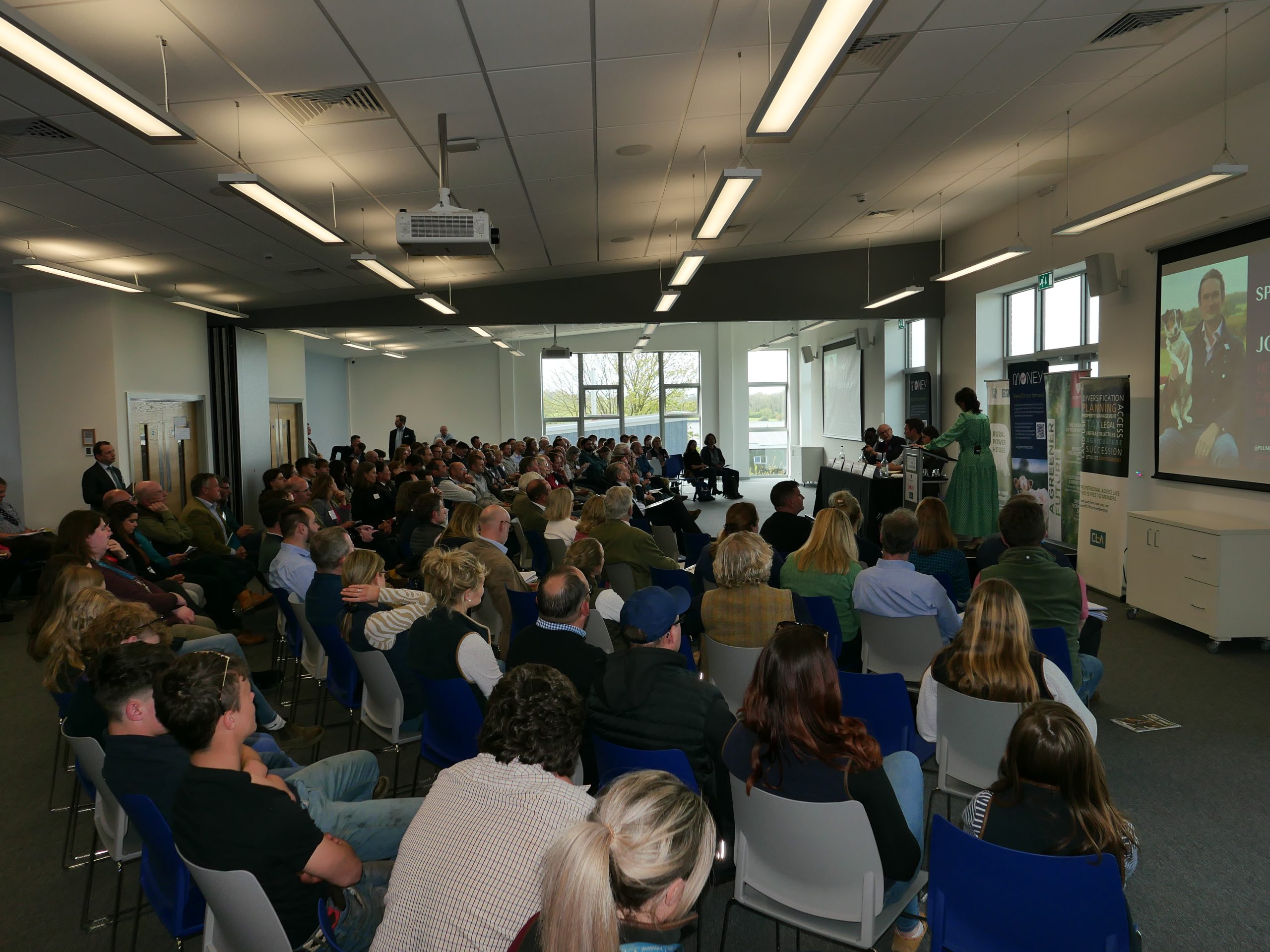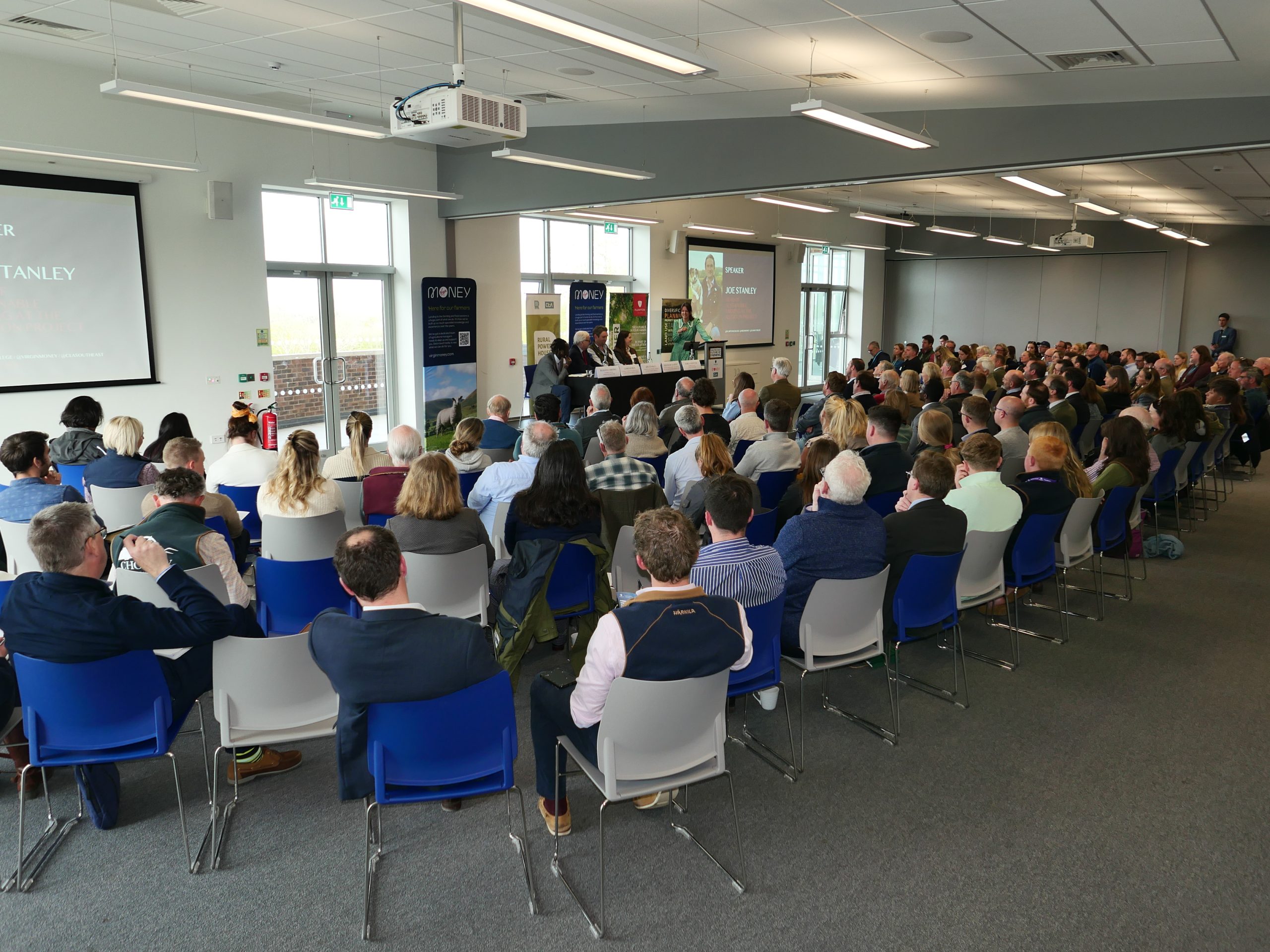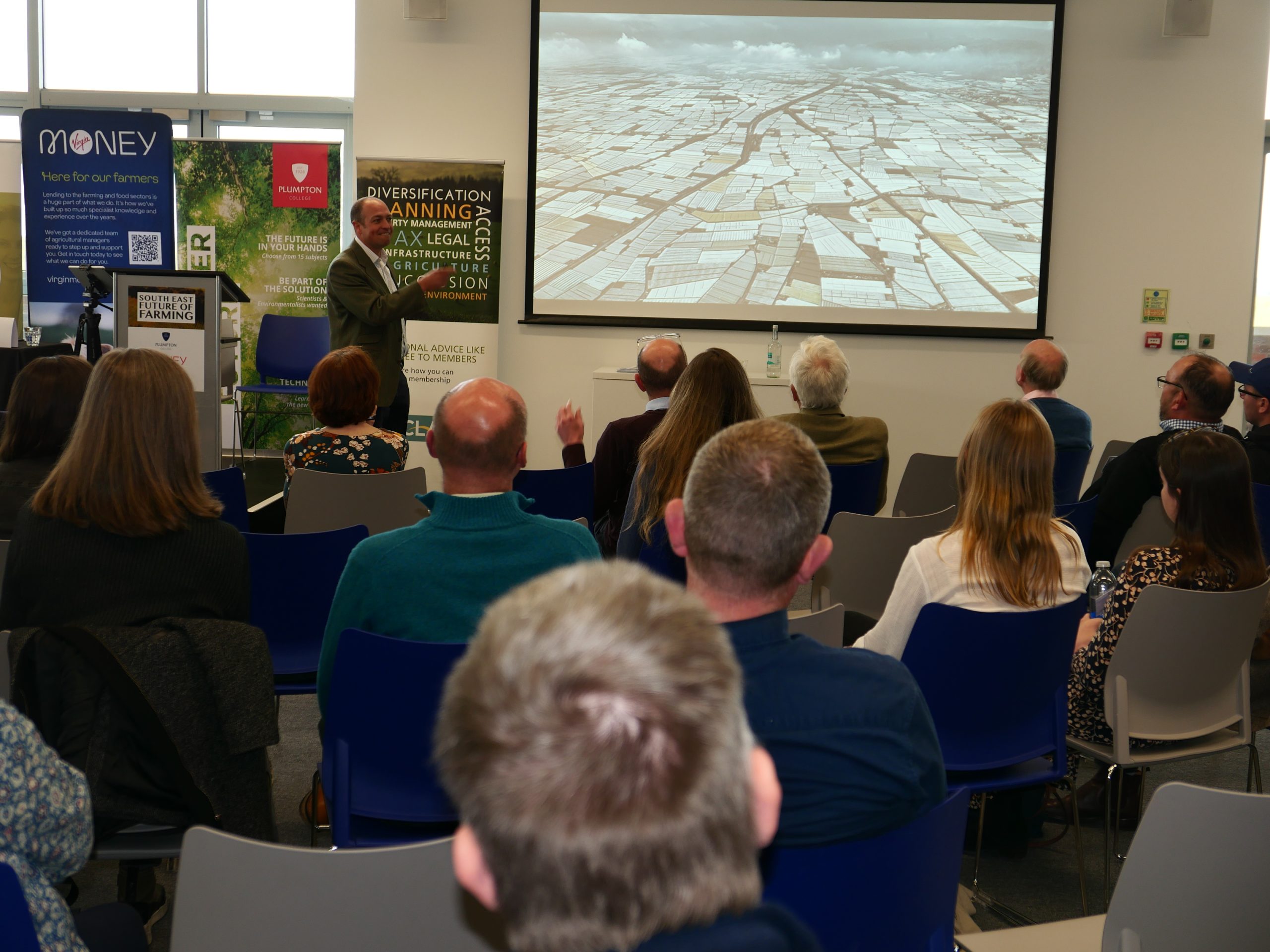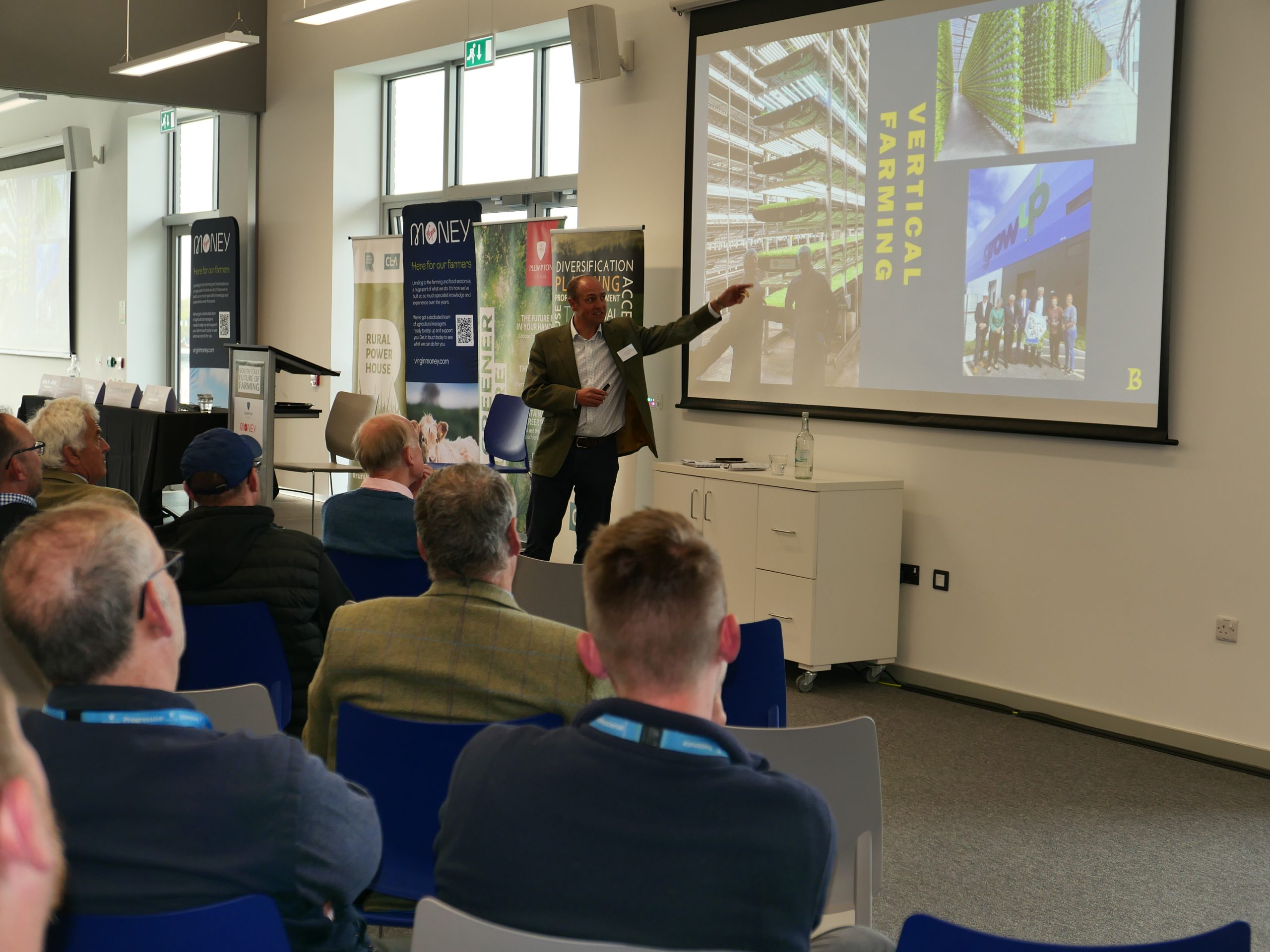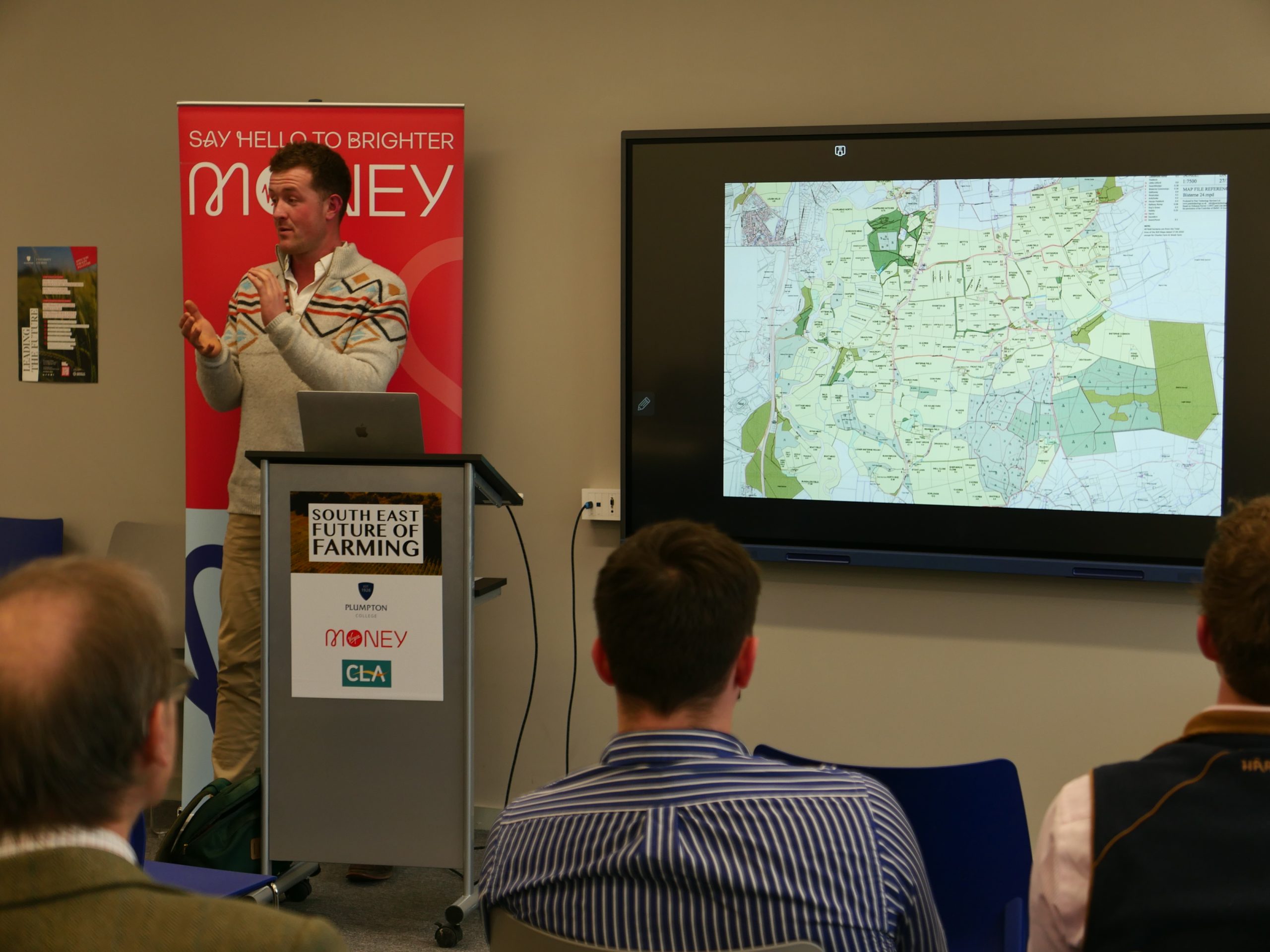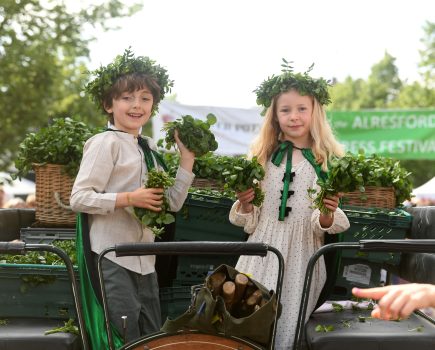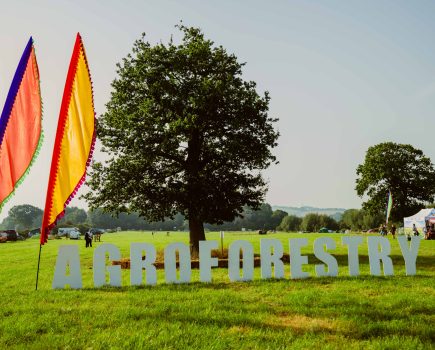Farmers need to press home the importance of food security in an uncertain world by presenting a coherent programme to the Government and leading from the front, a high profile conference heard.
“We need to give them solutions, not problems,” Lord Deben told the South East Future of Farming conference hosted at Plumpton College’s impressive new AgriFood Centre with sponsorship from Virgin Money and the Country Land and Business Association (CLA).
At the end of an impressive and impassioned opening speech, he said the industry needed to demand certainty over policy and an acceptance that the country had to produce as much home-grown food as was possible.
Pointing out that since there was no reason for party political differences over food security, farmers should be looking for a policy that was fixed for ten years, he added: “Politicians will eventually get the blame [for food security failures] so make them realise that.”
During an upbeat event that featured what panel chair Emily Norton described as “a stellar line-up of diverse thinkers”, there was a growing feeling that the difficulties created by the exceptionally wet winter could be used to advantage in persuading the politicians of the importance of food security.
While Lord Deben’s outspoken, note and PowerPoint free presentation narrowly stole the show, there were impressive contributions from the other panellists, farmer and conservationist Joe Stanley, social media champion Eleanor Gilbert and Kenyan-born tenant farmer, butcher and chef Flavian Obiero, himself no stranger to the likes of TikTok and Instagram.
All highlighted the importance of farming in an uncertain world and the vital need for the industry to continue growing and rearing food as well as focusing on protecting and enhancing the environment.
The conference was entitled Driving Productivity and Profitability in a Sustainable Way, a broad enough headline that allowed the speakers to focus on the issues of importance to them and to a capacity audience that enjoyed a dynamic and well-organised afternoon and early evening event.
Predictably, it was supply chain fairness, food security, protecting the soil, connecting with the public and dealing with the impacts of climate change that regularly came to the fore in a lively debate that saw some equally thoughtful contributions from the audience.
In a short welcoming address, Brian Richardson, Virgin Money’s head of agriculture, welcomed a number of Plumpton College’s students to the event, pointing out the institution’s contribution to the future of farming, and set the scene by remarking that farmers needed to be given “a clear direction of travel” by the Government.
Lord Deben, the UK’s longest-serving Secretary of State for the Environment and a former Minister of Agriculture Fisheries and Food, was dismissive of recent ministers. He said the industry needed DEFRA to be headed up by someone who had “a proper connection with agriculture” and didn’t treat it as “a moving on job for a year”.
On the impact of climate change on farming, he commented: “After the wettest period in recorded history we must accept that climate change will be a major issue” and said the “number one certainty” was that farmers would face weather patterns they had never before had to deal with.
On food security he said that while in the past there had been a view in government that “we could always bring in food from elsewhere”, that was no longer viable.
Pointing out the importance of continuing to press the Government on the need for the UK’s farmers to grow food, he said it was “nonsense to say that public goods do not include producing food”. And on the lack of clarity around farming policy, he added: “Farmers don’t know how to take into account what the Government wants because it doesn’t know what the Government wants.”
His comment that Brexit had been “a complete disaster” and an exercise in self-harm brought a spirited response from one audience member who bravely attempted to justify the decision during the Q&A session that followed.
Joe Stanley, head of sustainable farming at the Game and Wildlife Conservation Trust’s Allerton Project, reinforced the view that farming could continue alongside conservation measures and produced plenty of scientific evidence highlighting the benefits of a more environmentally aware approach.
One example was a slide showing the placement of beetle banks aimed at enhancing the farm’s integrated pest management system around a line of telegraph poles. As well as providing a vital habitat, using that part of the field in this way meant he was less likely to hit the pole with a sprayer boom, he pointed out.
As the youngest member of the panel, Eleanor Gilbert, otherwise known as
@berkshirefarmgirl and the BBC’s Countryfile Young Countryside Champion for 2022, had plenty of ideas about ways in which farmers could better communicate with the public.
Despite having 20,000 viewers across various social media platforms to keep entertained and educated, Eleanor, who was introduced to farming on her step father’s farm in her teens, is also studying agriculture and crop management at Harper Adams University, where she is in her final year. She highlighted the need for more education and careers advice around farming and for farmers to embrace technology and engage more with the public.
There was plenty of hands-on, practical advice from Flavian Obiero, who moved to the UK at 15 after growing up in Kenya. Now a Hampshire County Farms tenant, he outlined his “steep learning curve”, the challenges he had faced and the ways he had dealt with them in an engaging presentation.
A trainee butcher with a strong belief in finding new direct sales markets for his pigs, sheep and goats, he joined the calls for supply chain fairness and transparency and said farmers had to “stop being price takers”.

